Not-as-lively: ‘People seem to have given up’
Low turnout takes the heat out of NA-48 race.
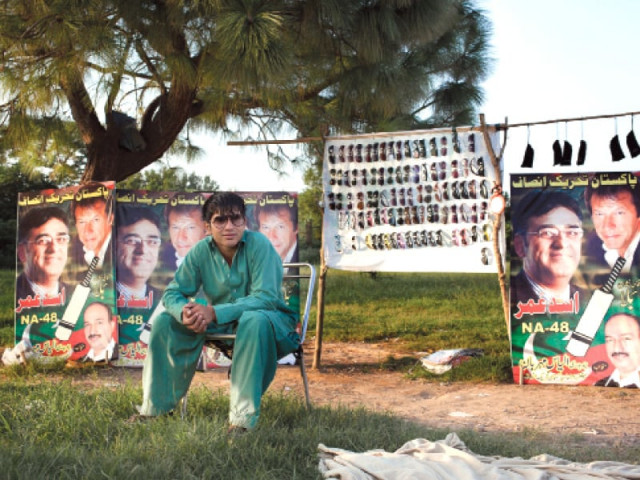
Turnout might have been low, but this salesman and his fellow PTI supporters won the day. PHOTO: MYRA IQBAL/EXPRESS
Political parties and candidates failed to mobilise voters in the federal capital on Thursday as the city held a by-election for the first time ever.
According to unofficial estimates, turnout in Islamabad’s NA-48, the National Assembly seat vacated by Pakistan Tehreek-e-Insaf (PTI) President Javed Hashmi, hovered around 30 per cent --- around half of the 59.5 per cent turnout polled in the constituency during the general elections on May 11.
The sparse crowds at the 260 polling stations in NA-48, which has total 293,525 registered voters, were believed to be mostly due to the administration’s decision not to give a public holiday for the by-polls. Private institutions and markets were open for business throughout the day and government offices only closed around midday.
By-elections are usually not expected to draw a voter turnout as substantial as the general elections, according to political analysts. But political workers and residents felt the disinterest among Islamabad voters might also be because the chances of sociopolitical change through the ballot are almost nonexistent. Some residents were also of the opinion that people might be fed up of the democratic process, just three months after they picked their representatives.
Most polling stations in NA-48, where the main battle was between the PTI’s Asad Umar and Pakistan Muslim League-Nawaz (PML-N) candidate Ashraf Gujjar, had received around 10 per cent of their registered votes.
“On May 11, I did not even get a five-minute break during 12 hours of polling duty,” said Sher Ali, the Presiding Officer at Islamabad Model College for Girls G-10/4.
“Today, there was barely anything to do,” Ali added, pointing at the empty polling booths. “People seem to have given up.”
Political workers kept saying voters would turn up after 1pm, when the federal government offices were directed to close. But polling stations showed little sign of activity even late in the afternoon.
But most people who did take the time to vote on Thursday appeared to have stuck with their May 11 choices.
“I am giving the PML-N another chance because I feel they need more time to resolve the crises amassed over the past five years,” said Mustafa Sagheer, who cast his ballot at the Islamabad Model College for Boys in I-8/3. “Even the tough steps they have taken, such as the federal budget, were for the greater good.”
The PML-N struggled to maintain its traditional hold in the rural areas, where polling activity was witnessed compared to the urban sectors, due to internal party differences. Workers loyal to PML-N’s former Member National Assembly (MNA) Anjum Aqeel Khan were seen supporting the PTI instead.
With the Jamaat-e Islami (JI) candidate out of the running, the Jamaat’s loyalists also mostly opted for the PTI on the directive of JI Amir Munawwar Hassan. But some also abstained and a few others went for the PML-N, according to the party’s workers. “The JI women and youth are mostly going for PTI,” one political worker said. “But the votes of the men appear to be divided.”
The PTI caused a major upset in the constituency in the general elections when Hashmi defeated Khan by a sound 21,000 vote-margin.
While trade unions in the capital appeared to be supporting the ruling party’s candidate Gujjar, it seemed that Umar had white-collar support.
“Our politicians should think about contesting from only one constituency,” said a presiding officer at an F-10 polling station while requesting anonymity.
“By-elections are not just a waste of the state’s resources, but low voter turnout also means that essentially, only a handful of people elect the next representative.”
Correction: The earlier version of the story mentioned incorrect figure of the registered voters. The error has been fixed.
Published in The Express Tribune, August 23rd, 2013.

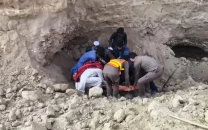
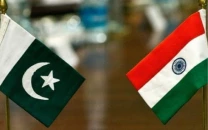

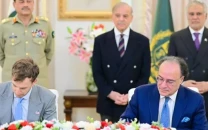



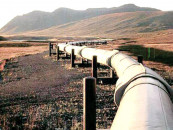


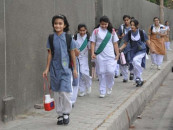

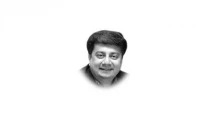





COMMENTS
Comments are moderated and generally will be posted if they are on-topic and not abusive.
For more information, please see our Comments FAQ